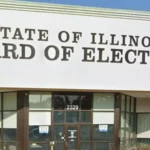
On Friday, June 27th, the Supreme Court issued a 6–3 ruling in Mahmoud v. Taylor, siding with parents who wanted to opt their children out of lessons centered around LGBTQ books and characters. In its decision, the Supreme Court upheld the precedent set by Wisconsin v. Yoder, affirming the plaintiffs’ right to religious freedom.
Case Summary and Timeline:
In Montgomery County, Maryland, schools integrated LGBTQ-themed picture books into the elementary language arts curriculum. Parents and faculty immediately raised objections, citing religious reasons and concerns that the material was not age appropriate. Tensions escalated when the Maryland school board eliminated the option for parents to opt their children out of the curriculum.
In May 2023, parents from diverse religious backgrounds filed for an injunction, asserting that the curriculum violated their rights under the Free Exercise Clause, Free Speech Clause, Due Process Clause, and Maryland state law. However, both the district court and the 4th Circuit Court of Appeals denied the injunction. The case then made its way to the Supreme Court in April 2025 before being decided on June 27th.
Wisconsin v. Yoder:
The plaintiffs based their argument on the precedent set by Wisconsin v. Yoder, in which the Supreme Court affirmed the right of Amish parents to opt their children out of public high school. The parents wanted to protect their children from content that went against their religious beliefs.
The parents in Mahmoud v. Taylor argued that “like the compulsory high school education considered in Yoder, these books impose upon children a set of values and beliefs that are ‘hostile’ to their parents’ religious beliefs” and present an “objective danger to the free exercise of religion.” The lower courts did not support this claim, reasoning that the Yoder decision was sui generis, meaning it was based on a unique set of facts and “that language must be read in the context of the specific claims raised by the Amish respondents.” However, Justice Alito recognized in his majority opinion that the Yoder case has general applicability and should not be dismissed as a precedent for other cases.
SCOTUS Ruling:
Justice Alito agreed with the plaintiffs’ reliance on Yoder v. Wisconsin in their argument. He explained that “in Yoder, we recognized that parents have a right ‘to direct the religious upbringing of their children,’ and that this right can be infringed by laws that pose ‘a very real threat of undermining’ the religious beliefs and practices that parents wish to instill in their children.”
Similarly, the parents in Mahmoud v. Taylor have the right to raise their children in whatever religious beliefs they see fit. By including LGBTQ-centered books in the curriculum without notification or the option to opt out, the school is “requiring them to contradict their faith in order to access a public benefit or avoid exposing their children to objectionable views by incurring the costs of alternatives to public school.”
Contrary to the lower court’s conclusion that no proof of coercion or harm had been shown by the plaintiffs, Justice Alito wrote that “the books are unmistakably normative. They are designed to present certain values and beliefs as things to be celebrated, and certain contrary values and beliefs as things to be rejected.” While the lower courts claimed that no proof existed that the books were used to promote certain ideologies, that claim is contradicted by guidance provided to teachers on how to respond to student questions about the new curriculum. A close examination of this guidance reveals a clear ideological bias towards transgenderism.
This infringes upon the religious freedom of teachers and parents who do not hold this view. They seek to shield their children from ideas that contradict their deeply held beliefs. The Supreme Court rightly recognized the substantial burden placed on the plaintiffs’ religious exercise by the school board and overturned the lower courts’ rulings by granting the requested injunction.
SUPPORT LANDMARK LEGAL FOUNDATION
We are truly facing existential threats to our individual rights and liberties, the Constitution, and our national character. If unchallenged, this assault on our very way of life will ruin our great nation. With your financial and moral support, Landmark is not going to let that happen without a fight. Will you join us?
JOIN OUR MAILING LIST
Never miss an update from Landmark Legal Foundation as we continue the fight to preserve America’s principles and defend the Constitution from the radical left.





